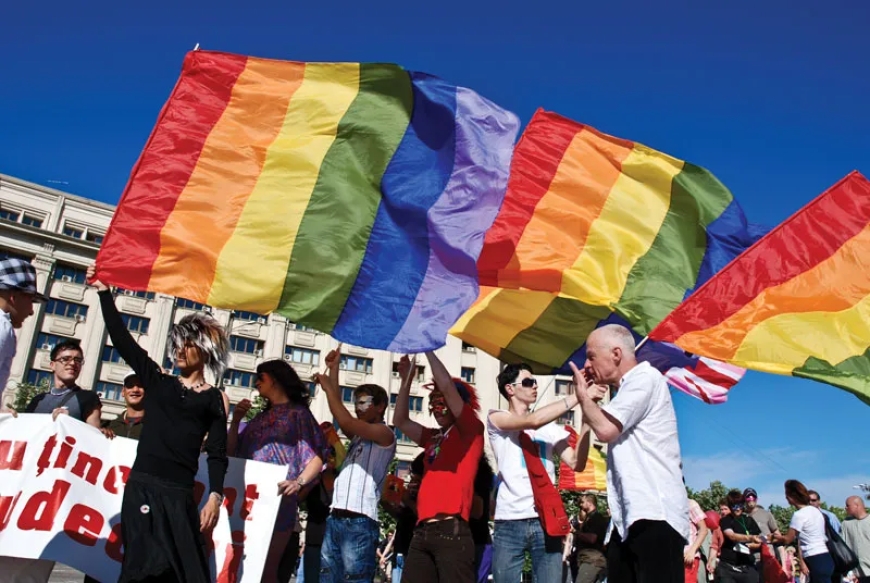What It Means to Be Queer in the 21st Century
A comprehensive look at the meaning of being queer in the modern world, covering identity, history, politics, visibility, and evolving language.

What It Means to Be Queer in the 21st Century
Being queer in the 21st century is a multifaceted and evolving experience. The word “queer,” once used as a slur, has been reclaimed by many in the LGBTQ+ community to describe a spectrum of identities and experiences that challenge traditional norms of gender and sexuality. Today, the term embodies fluidity, resistance, visibility, and empowerment. In this article, we’ll explore the modern meaning of queerness and how it influences personal identity, politics, culture, and society at large.
The Evolution of the Word “Queer”
Historically, “queer” was a derogatory term used to marginalize people who deviated from heteronormative standards. However, starting in the late 20th century, activists and scholars began reclaiming the word as an umbrella term for all non-normative sexual and gender identities. Today, it symbolizes inclusivity, nonconformity, and the challenge of rigid binary systems.
Queer as an Identity
For many people, identifying as queer means embracing a sense of self that transcends fixed definitions. Queer people may be gay, lesbian, bisexual, pansexual, asexual, gender non-conforming, non-binary, transgender, or fall anywhere along the LGBTQ+ spectrum. The term allows for personal and political expression without the constraints of traditional labels.
Queerness and Fluidity
Queer identity often celebrates fluidity in both gender and sexuality. In a world that increasingly acknowledges the complexities of human experiences, queer individuals often resist the idea that identity must be permanent or strictly defined. Many people who identify as queer appreciate the freedom to evolve and change how they express themselves over time.
Intersectionality and Queer Lives
Being queer in the 21st century cannot be separated from race, class, disability, religion, and other factors that shape identity. Intersectionality plays a crucial role in understanding the diversity of queer experiences. A Black queer person, for example, may face different challenges than a white queer person. Queer liberation must be inclusive and attentive to these overlapping social realities.
Queer Politics and Activism
Queer identity is inherently political. The act of existing outside normative frameworks is, in itself, a form of resistance. Queer activism has fought for legal rights, healthcare access, anti-discrimination protections, and cultural representation. Movements like Pride, marriage equality, and trans rights are deeply rooted in queer political struggles.
Queer Representation in Media and Culture
Media and pop culture in the 21st century have become more inclusive of queer characters and stories, though challenges remain. Queer people now appear in films, TV, books, music, and social media, providing visibility and validation. However, harmful stereotypes and tokenism still persist, and there is a growing demand for authentic, diverse storytelling.
Global Perspectives on Queerness
Queer experiences vary significantly around the world. In some countries, being queer is celebrated and protected by law, while in others, it is criminalized or violently repressed. Global queer solidarity involves understanding and supporting those living under oppressive regimes while amplifying marginalized voices in every region.
Queer Youth and Identity Formation
Young people today are increasingly using the term queer to describe their evolving identities. Social media, educational resources, and supportive communities allow queer youth to find information and connection. Schools and parents play an essential role in fostering environments where queer identities are validated and respected.
Queer Joy and Resilience
Queerness is not just about struggle—it is also about joy, creativity, and community. Queer people have created rich cultural legacies in art, music, literature, fashion, and more. Celebrating queer joy is a radical act that resists oppression and asserts the beauty of being different.
The Future of Queer Identity
As society continues to evolve, so too will the meaning of queerness. It will adapt to new social movements, technologies, languages, and understandings of self. The core values—freedom, authenticity, inclusivity—will remain central. The queer future is expansive, open-ended, and deeply hopeful.
Conclusion
To be queer in the 21st century is to embrace a powerful and ever-changing identity. It is to live authentically in a world that often resists difference. It is to build communities, demand rights, and celebrate love in all its forms. Queer identity challenges norms, expands possibilities, and creates a more inclusive vision for the future of humanity.











